Gallagher Bassett Shows MPNs Are a Painful Waste
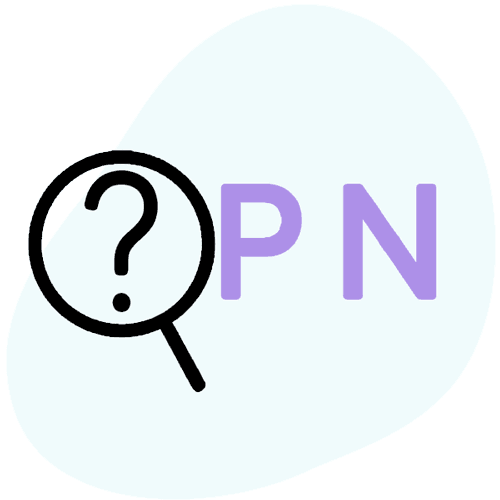
A recent exchange between a provider and Gallagher Bassett offers a perfect example of why California’s Medical Provider Network (MPN) system is a pointless, convoluted, unnavigable system that offers no value to injured workers or employers (but loads of financial value to claims administrators and their private equity owners).
After a worker suffered severe post-concussion symptoms from being struck by a propane tank lid, the Primary Treating Physician (PTP) requested—and Gallagher Bassett authorized—a series of psychological treatments.
The PTP referred the injured worker to a psychology specialist who (laudably) refuses to participate in MPNs.
The psychologist emailed a Gallagher Bassett Field Case Manager to confirm that the authorized treatment could proceed outside the MPN. The Field Case Manager agreed to the non-MPN treatment because she could not “find anyone that will see [the injured worker]” within the MPN.
As detailed below, it would have been impossible for the (concussed) injured worker to locate an eligible MPN provider. So impossible that even Gallagher Bassett’s Case Manager could not locate an MPN psychologist—in Sacramento, a city with no shortage of providers of every specialty.
This lack of MPN providers begs an important question: When will employers realize that MPNs prevent injured workers from accessing care? In California, MPNs’ only real function is to bully providers into Preferred Provider Organizations (PPOs) so that claims administrators and their private equity owners can siphon more money from providers.
Worse, claims administrators pass the cost of maintaining MPNs to employers, whose premiums fund an MPN system that does nothing for their employees. MPNs scare doctors away from treating injured workers—all while MPN fees, questionable discounts, and dubious payment denials fill the pockets of profiteers.
Gallagher Bassett Approves Psych Treatment
Being struck by a propane tank lid caused a host of issues for this injured worker, who needed everything from spinal imaging to speech therapy to psychological treatment.
In accordance with California law requiring claims administrator approval for all treatment, the PTP submitted a Request for Authorization (RFA) for recommended treatments, including psychological services. Gallagher Bassett approved the psychological services; however, the PTP was not a psychologist, so a referral was necessary.
Gallagher Bassett’s barely legible Utilization Review (UR) decision failed to specify any particular MPN ID number or name that applied to the injured worker. Thus, the PTP or any other provider could not possibly locate an MPN psychologist.
Gallagher Bassett “Cannot Find Anyone” in MPN
Not knowing the applicable MPN, the PTP referred the injured worker to a psychologist who refused to participate in MPNs or surrender revenue to PPOs.
Out of an abundance of caution—or perhaps just being familiar with how claims administrators routinely use MPNs as a pretext to deny payment for authorized treatment—the psychologist emailed Gallagher Bassett directly, asking the TPA to confirm that treatment could be rendered outside the MPN.
In a telling email, a Gallagher Bassett Field Case Manager reassured the psychologist that treatment outside the MPN was not only acceptable, but necessary—stating “I cannot find anyone that will see [the injured worker].”
Finding an MPN Provider: Good Luck
To demonstrate how absurdly convoluted the MPN system is, we attempted to identify the applicable MPN for this injured worker, and any eligible psychotherapy specialists within that MPN.
We started by consulting the Division of Workers’ Compensation (DWC)’s laughable attempt at a functioning MPN database and searched for MPNs maintained by the employer’s insurer, Old Republic Insurance.
We made an unsurprising discovery: the DWC lists 34 different MPNs for Old Republic Insurance. Even less surprising, 33 of the 34 MPNs have been withdrawn or terminated, leaving only one active MPN, the “Ryder/Conduent Care Solutions MPN.”
Next, we followed the link provided by the DWC—which led only to a Conduent marketing website. However, the only thing MPN-related was buried in the footer: a link for “California MPN Contact Information.”
And what did the Conduent website’s MPN link lead to? A roster of active providers? A map to identify MPN providers in the injured worker’s area? Nope. Just a PDF with contact information for a Medical Access Assistant and the following instructions:
“To directly access your employer’s MPN Provider List, please refer to the MPN Provider website link and instructions included in your Employee Notification.”
MPNs: Less Than Useless
This seemingly unremarkable exchange reveals the truth about MPNs: they’re an illusion that prevents injured workers from accessing authorized care.
What does this mean for employers? Put bluntly, your money is being flushed down the proverbial drain. Insurance carriers pay MPN fees, bemoaned as insurer “losses” in misleading reports. But paying to maintain MPNs isn’t about getting care delivered. It’s about intimidating doctors and depriving them of reimbursement for authorized treatment.
What does this mean for injured workers? Put bluntly, they cannot access care for their injuries. In this case, receiving authorized treatment requires navigating the MPN nightmare, something beyond even the claims administrator’s Field Case Manager. If Gallagher Bassett can’t figure it out, how can we expect providers and injured workers to?
More importantly, why put providers and injured workers through all this just to increase profits for claims administrators and private equity firms?
Submit RFAs in 30 seconds and automatically track UR decisions with daisyAuth. Request a demo below!
REQUEST DEMO
DaisyBill provides content as an insightful service to its readers and clients. It does not offer legal advice and cannot guarantee the accuracy or suitability of its content for a particular purpose.
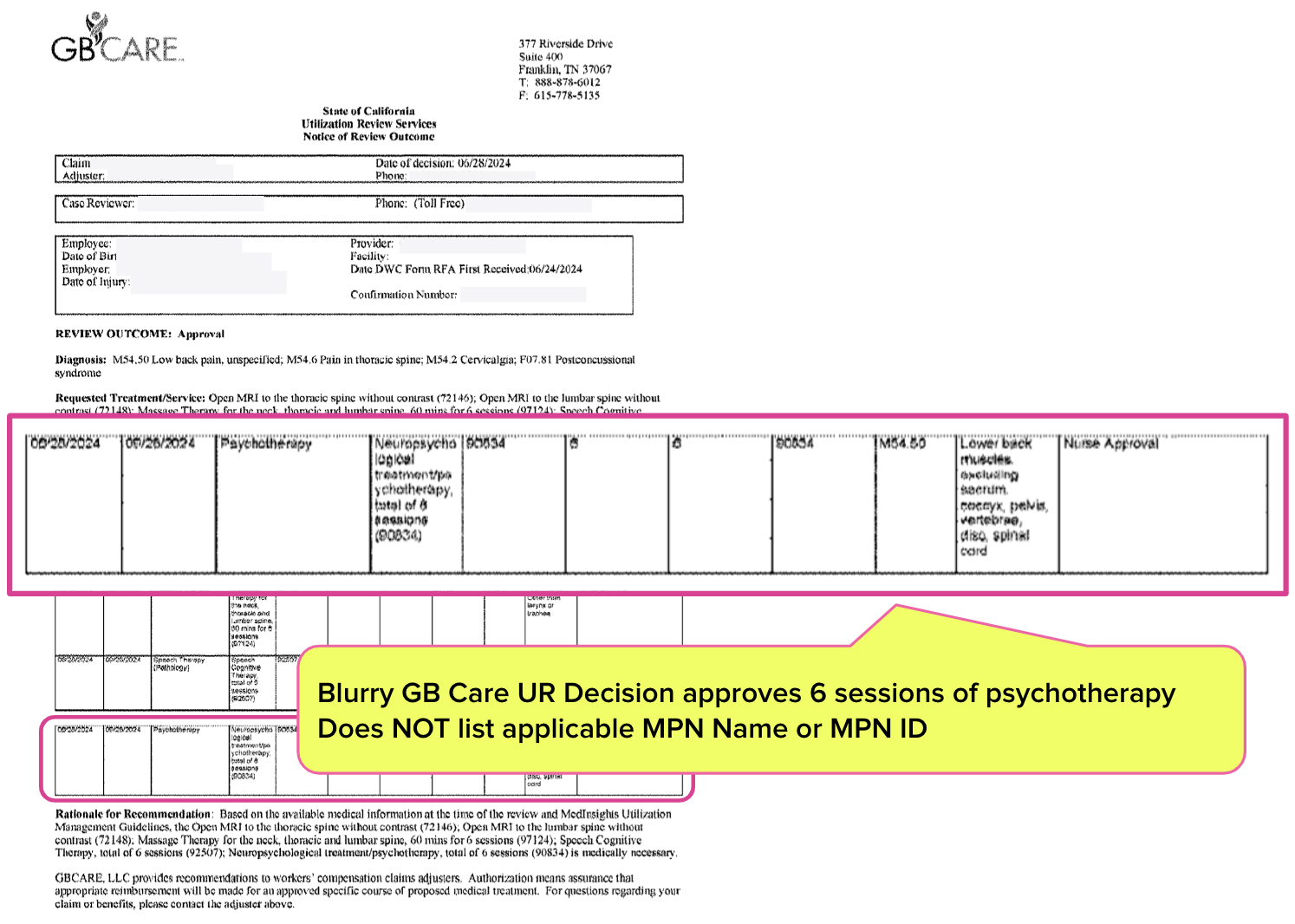
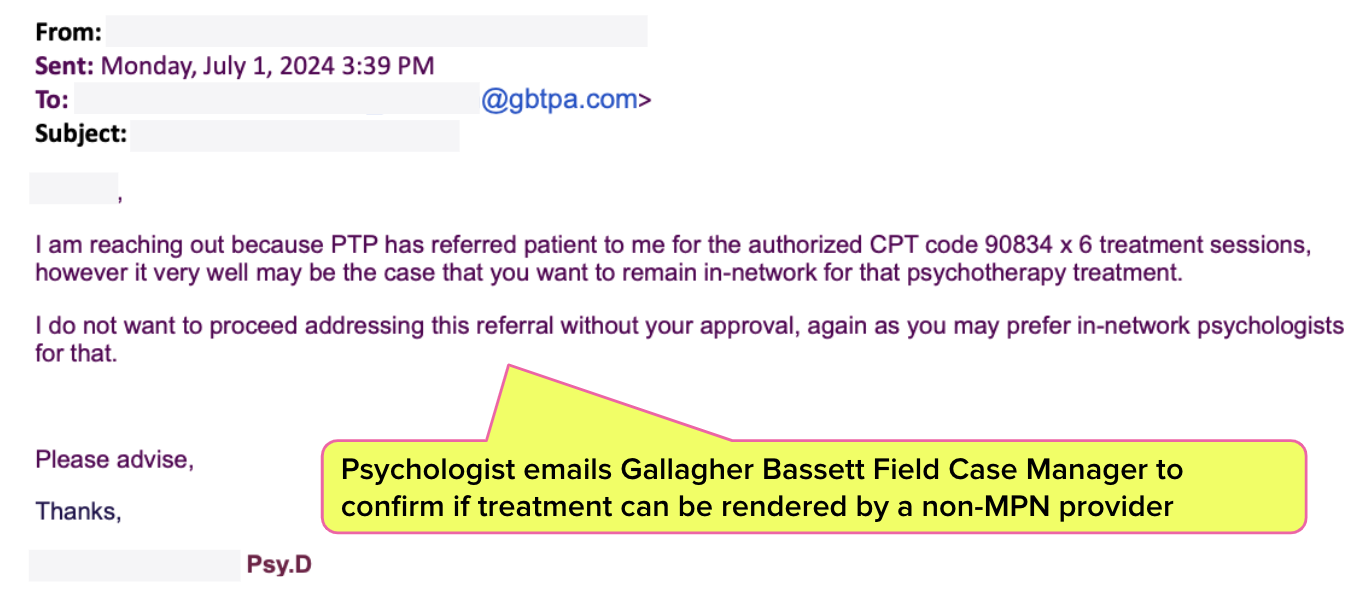
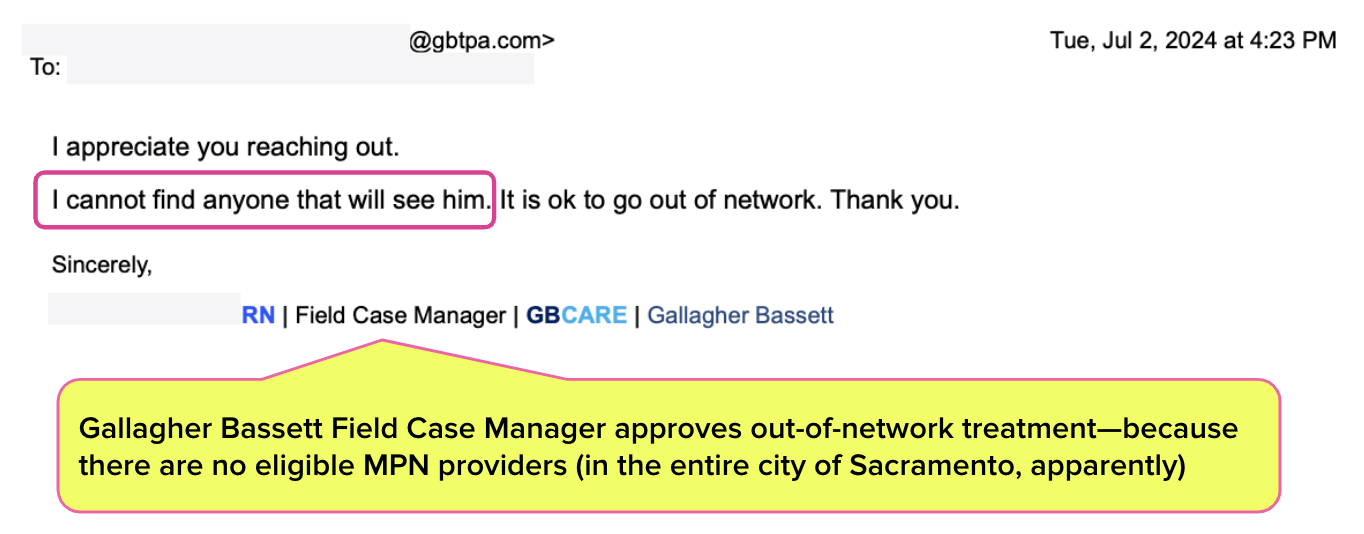
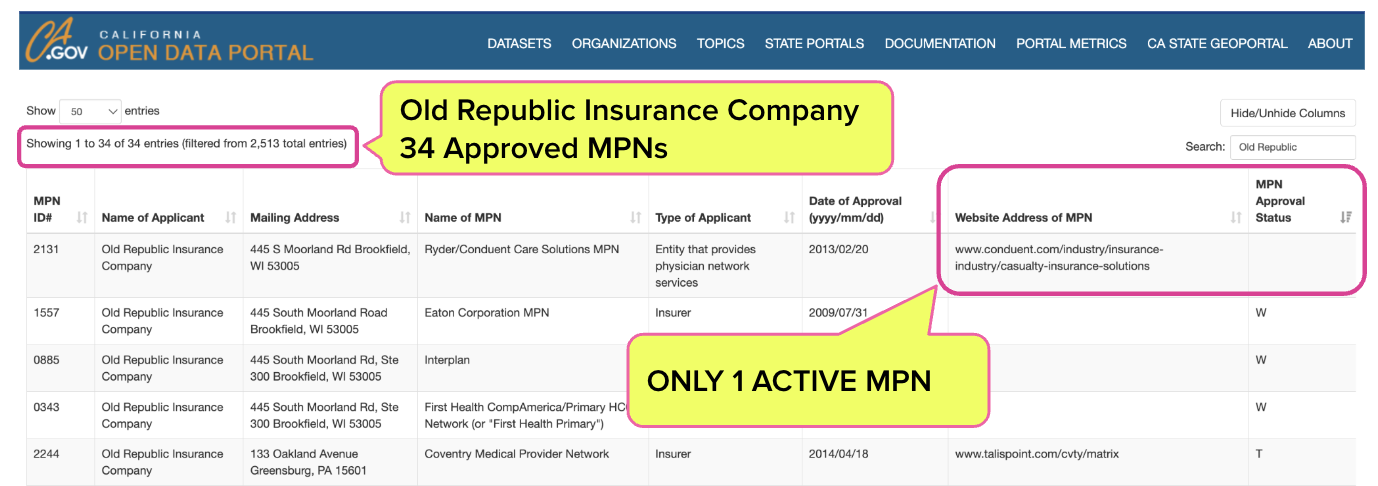
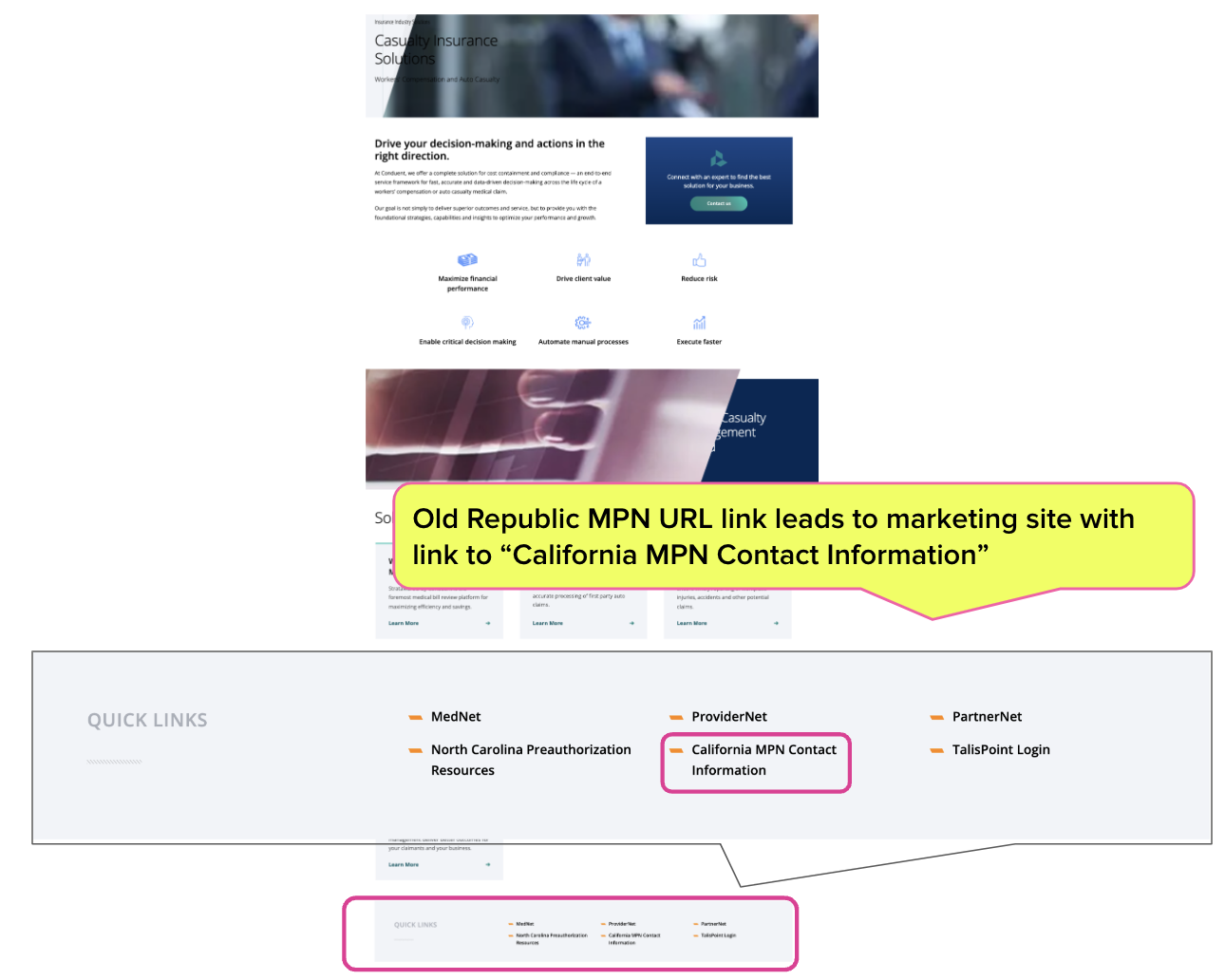
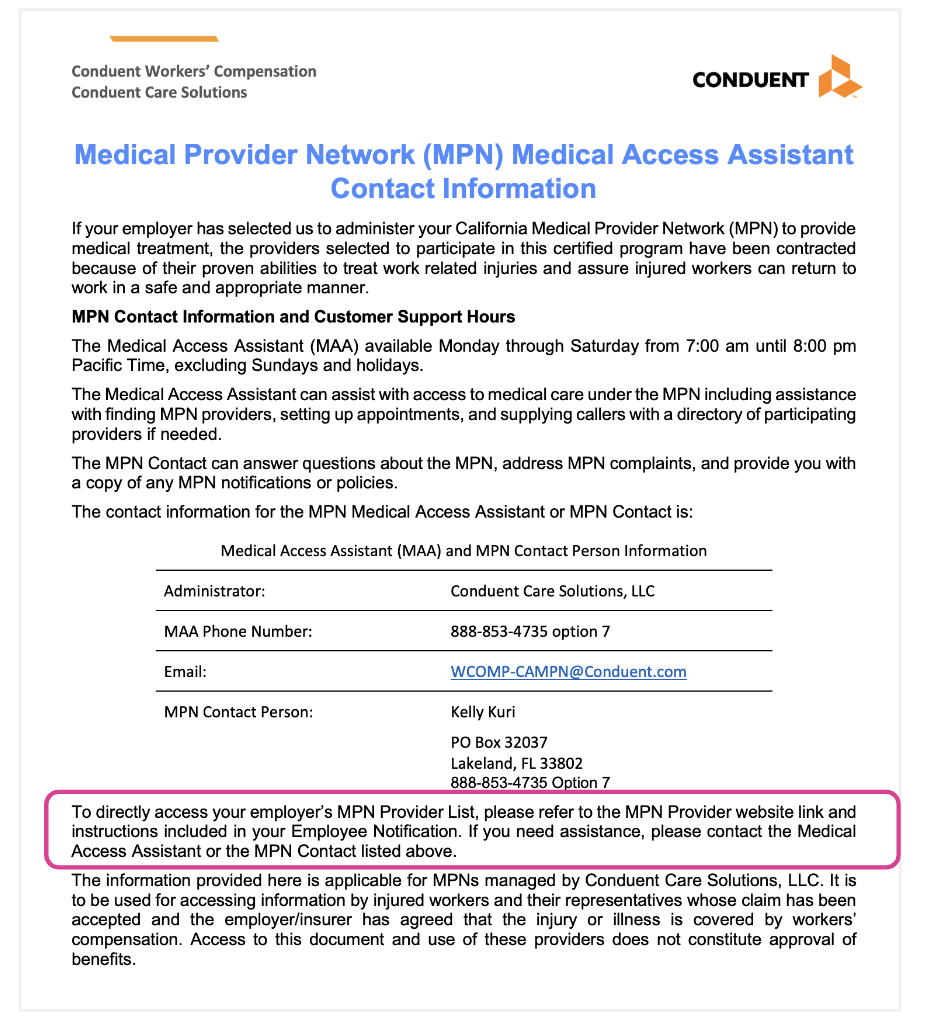
.gif)
.gif)

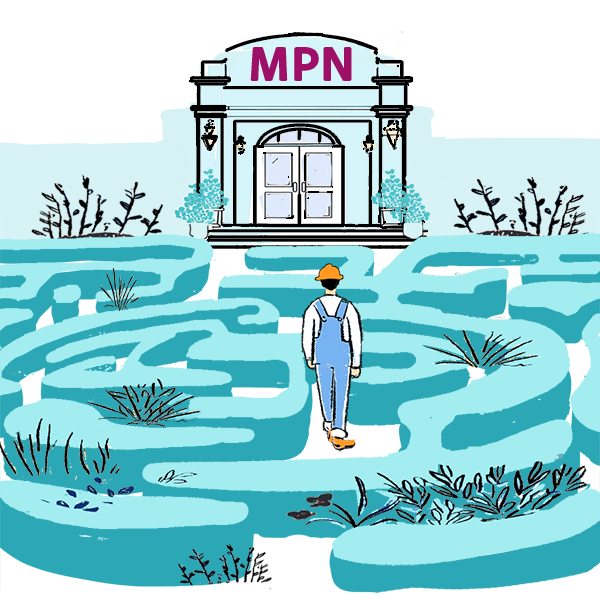.png)
